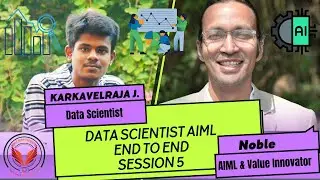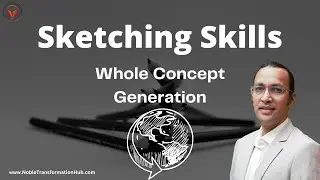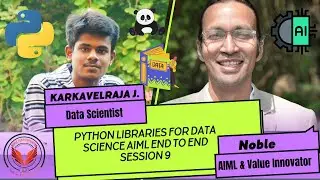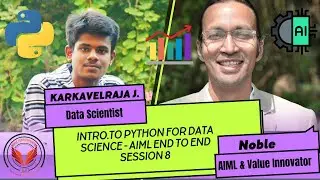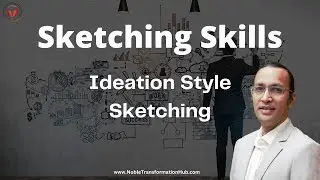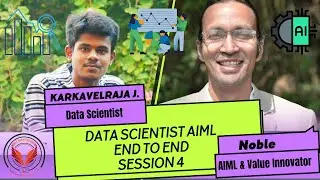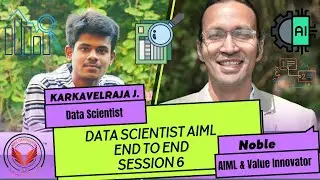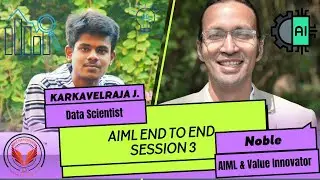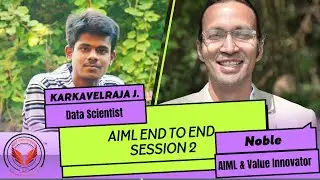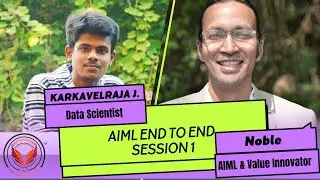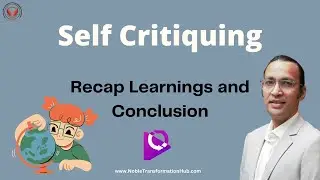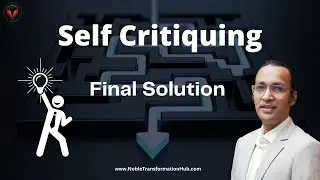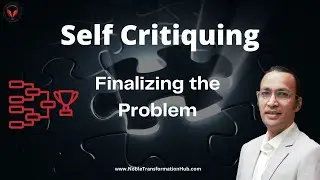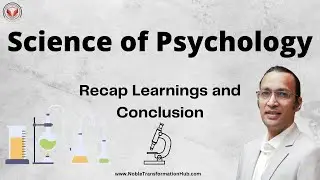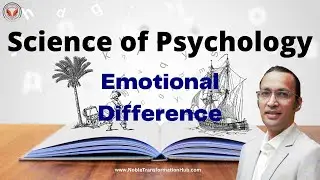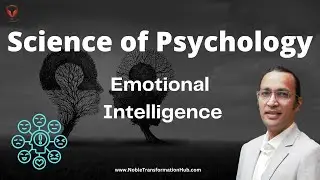Unsupervised Learning DBSCAN Clustering | AIML End-to-End Session 47
Ready to dive deep into the world of
Artificial Intelligence
Machine Learning (AIML)?
Welcome to Session 47 of our End-to-End AIML series! In this session, we focus on DBSCAN (Density-Based Spatial Clustering of Applications with Noise), a powerful clustering algorithm in Unsupervised Learning. Unlike K-means, DBSCAN can identify clusters of varying shapes and sizes, and is particularly useful for finding clusters in data with noise or outliers.
What You'll Learn:
Introduction to DBSCAN: Understand the key concepts behind DBSCAN, including its ability to group data points based on density and detect outliers.
How DBSCAN Works: Learn how DBSCAN defines clusters using two parameters: Epsilon (eps) and Minimum Samples (minPts), and how it identifies core points, border points, and noise points.
Advantages of DBSCAN: Explore why DBSCAN is superior in handling clusters of arbitrary shapes and why it performs well in noisy datasets compared to K-Means and Hierarchical Clustering.
Practical Use Cases: See how DBSCAN is applied in real-world scenarios, such as anomaly detection, geospatial data analysis, and image segmentation.
Hands-On Coding Example: Follow along with a step-by-step implementation of DBSCAN in Python using Scikit-learn. Learn how to tune the parameters and visualize clusters using Matplotlib.
Evaluating DBSCAN: Understand how to evaluate DBSCAN clustering results using metrics like Silhouette Score and Cluster Validity Index.
Best Practices for DBSCAN: Get tips on when and how to use DBSCAN for various data types and the challenges to look out for when applying it.
This session is perfect for anyone interested in advanced clustering techniques and looking to solve complex clustering problems in data science.
Don’t forget to like, share, and subscribe for more hands-on AI, ML, and data science tutorials!
Seize this exclusive
opportunity to
accelerate your learning with Personalized
Live sessions tailored just for you!
Google Form Registration:
Secure your spot by filling out the Google Form below.
https://docs.google.com/forms/d/1dBgx...
@TwoMinutePapers
@3Blue1Brown
@sirajraval
@sentdex
@DeepMind
@lexfridman
@DataSchool
@TensorFlow
@PyTorch
@TheCodingTrain
@KrishNaik
@MachineLearningTV
@AIEngineering
@ArtificialIntelligence
@JeremyHoward
@TechWithTim
@GoogleAI
@AIandGames
@AIhub
@AIforAll
@HarvardInsights
@StanfordScholars
@MITOpenCourseWare
@UCBerkeleyOfficial
@OxfordAcademia
@CambridgeScholars
@YaleUniversity
@PrincetonPerspectives
@ColumbiaEducate
@CaltechDiscoveries
@UChicagoIntellect
@ImperialCollegeLondon
@ETHZurichKnowledge
@UniversityofTokyoOfficial
@UCLAInsights
@MichiganStateUniversity
@UniversityofToronto
@PekingUniversity
@NUSingapore
@ANUResearch








